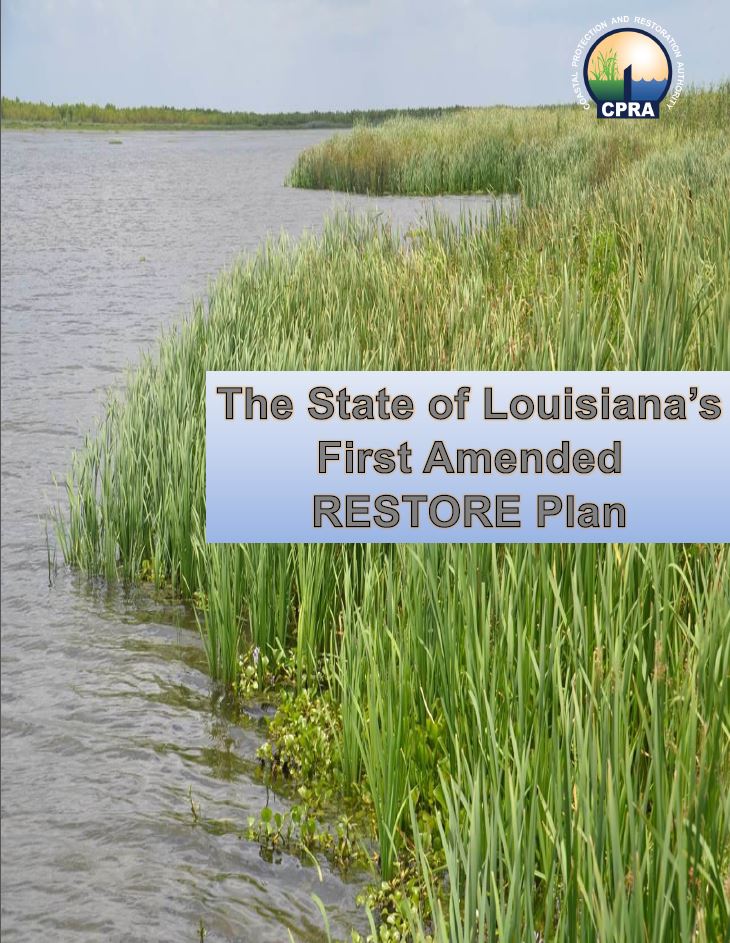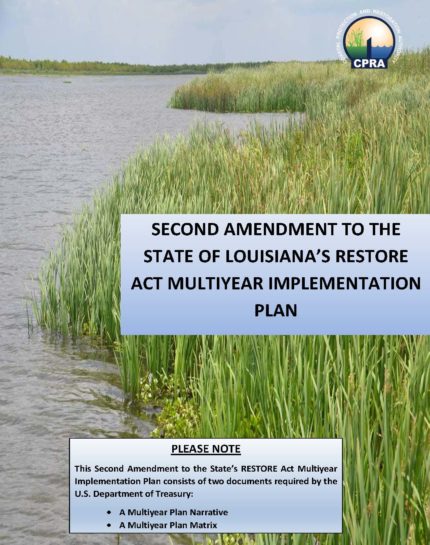Sign Up. Stay Informed.
RESTORE Act
The Resources and Ecosystems Sustainability, Tourist Opportunities and Revived Economies of the Gulf Coast States Act of 2012 (“RESTORE Act”) was signed into law on July 6, 2012. The RESTORE Act creates a Gulf Coast Ecosystem Restoration Council (“RESTORE Council”) and a Gulf Coast Restoration Trust Fund (“Trust Fund”) and dedicates 80% of the administrative and civil penalties paid after the enactment of the Act under the Federal Water Pollution Control Act (“Clean Water Act”) in connection with the Deepwater Horizon oil spill to the Trust Fund for the restoration and protection of the Gulf Coast region. The RESTORE Act also outlines a structure by which the funds can be utilized to restore and protect the natural resources, ecosystems, fisheries, marine and wildlife habitats, beaches, coastal wetlands and economy of the Gulf Coast region.
The RESTORE Act outlines the following framework for allocation of the Trust Fund:
- 35 percent equally divided among the five States for ecological restoration, economic development, and tourism promotion (“Direct Component”);
- 30 percent plus interest managed by the Council for ecosystem restoration under the Comprehensive Plan (“Council-Selected Restoration Component”);
- 30 percent divided among the States according to a formula to implement State expenditure plans, which require approval of the Council (“Spill Impact Component”);
- 2.5 percent plus interest for the Gulf Coast Ecosystem Restoration Science, Observation, Monitoring and Technology Program within the Department of Commerce’s National Oceanic and Atmospheric Administration (NOAA); and
- 2.5 percent plus interest allocated to the States for Centers of Excellence Research grants, which will each focus on science, technology, and monitoring related to Gulf restoration.
The three parties whose Clean Water Act penalties are subject to the RESTORE Act are: Transocean Deepwater Inc. (“Transocean”), Anadarko Petroleum Corporation (“Anadarko”) and BP Exploration & Production Inc. (“BP”). On January 3, 2013, Transocean agreed to pay a $1 billion civil penalty under the Clean Water Act for its role in the oil spill. Eighty percent of these amounts plus interest, or approximately $816 million was deposited into the RESTORE Trust Fund in three installments paid in full by February 2015. On December 16, 2015, a final judgment was issued against Anadarko for Clean Water Act penalties in the amount of $159.5 million for its role in the oil spill. Eighty percent of these funds plus interest, or approximately $127.6 million, was deposited into the RESTORE Trust Fund through a single payment in March 2016.
On April 4, 2016, the U.S. District Court for the Eastern District of Louisiana entered a final consent decree among the United States, the five Gulf Coast States and BP in which BP agreed to pay $5.5 billion plus interest under the Clean Water Act for its role in the oil spill. Eighty percent of these funds, or approximately $4.4 billion, will be deposited into the RESTORE Trust Fund in fifteen annual installments beginning no later than one year after entry of the consent decree on April 4, 2017, and ending by April 4, 2031, with a penalty interest payment being deposited in 2032. Entry of the BP consent decree also triggered the effective date of the Spill Impact Allocation Final Rule at 40 C.F.R. Part 1800, which allocates 34.59% of the total Spill Impact Component funds to the State of Louisiana.
In summary, over a 15-year period, the State of Louisiana will receive approximately $260.4 million under the Direct Component, approximately $551.5 million under the Spill Impact Component and approximately $26.6 million under the Centers of Excellence Component. The State was awarded $38.3 million in grants under the Council-Selected Restoration Component under the RESTORE Council’s Initial Funded Priorities List (FPL) in December 2015. In February 2020, the State’s River Reintroduction into Maurepas Swamp project was selected by the RESTORE Council for construction funding under FPL 3a in the amount of $130 million. The state will submit additional project proposals for consideration for funding under the Council-Selected Restoration Component as the RESTORE Council opens future rounds of project and program solicitations.
Second Amendment to the State of Louisiana’s RESTORE Act State Expenditure Plan
Parish Matching Amendment to the State of Louisiana’s First Amended RESTORE Plan
Louisiana’s First Amended RESTORE Act Plan Approved for $811.9M
Second Amendment To The State of Louisiana’s RESTORE Act Multiyear Implementation Plan


